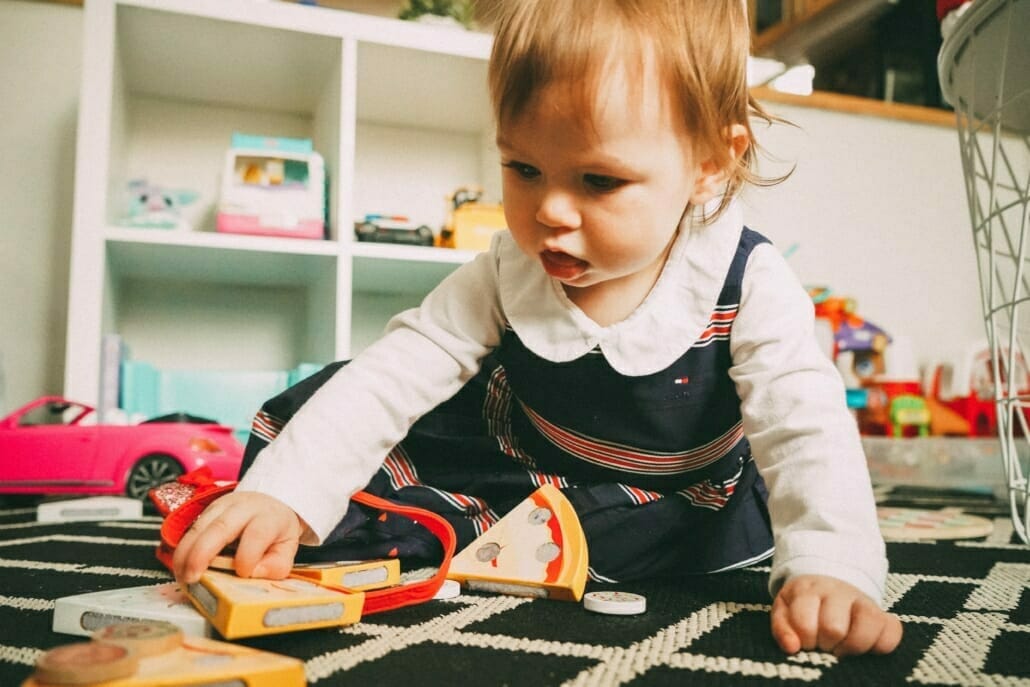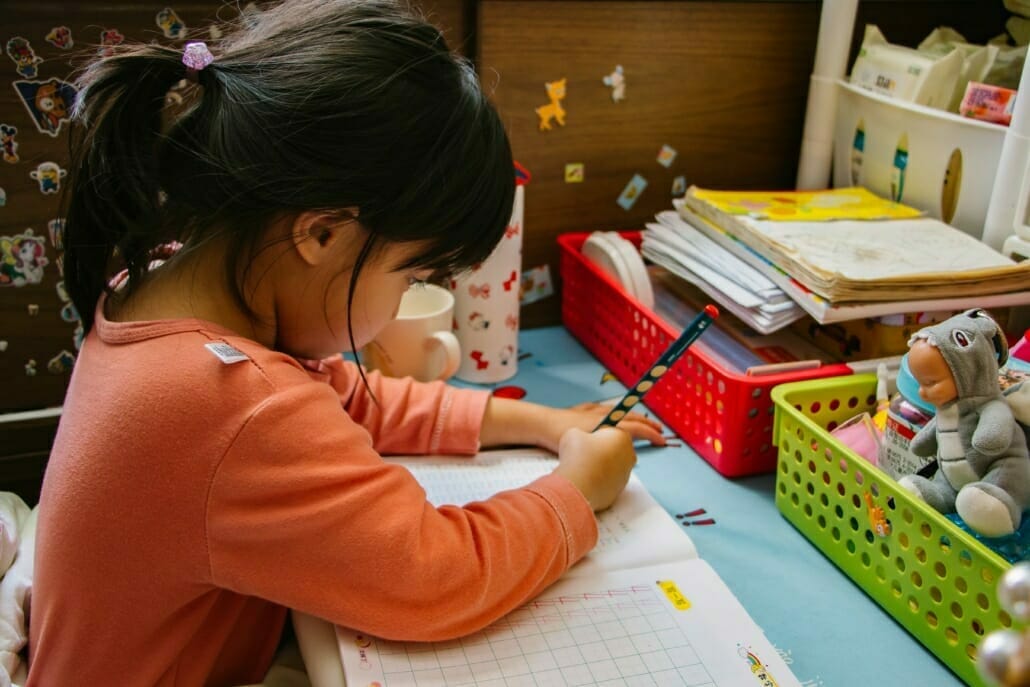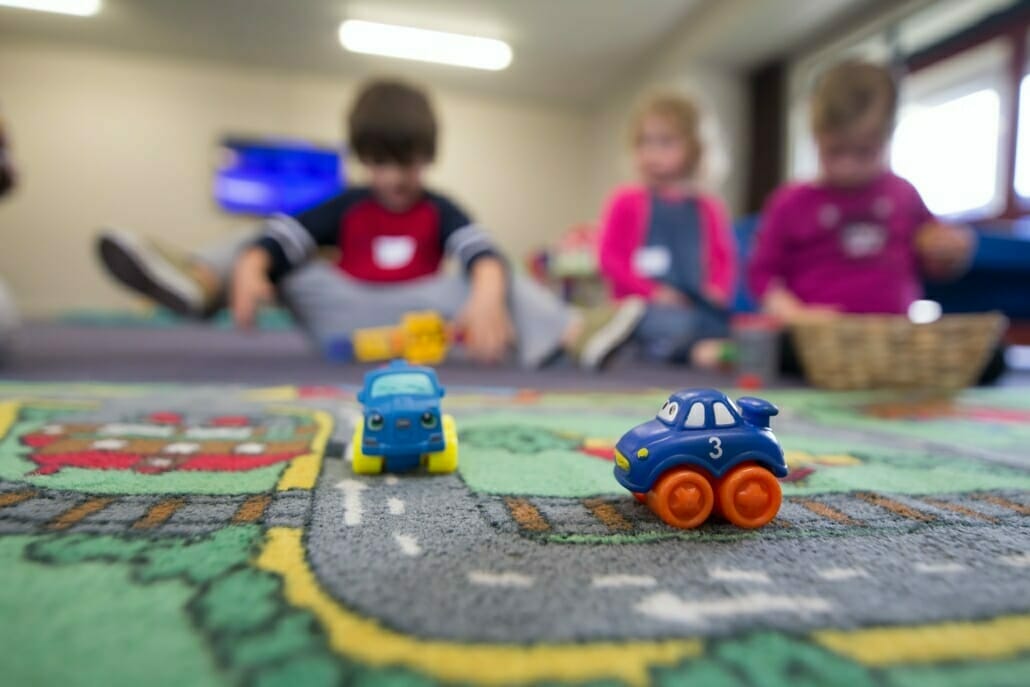Child daycare in Germany
For children starting daycare when they’re still young essentially contributes to equal opportunities. Children can build friendships and benefit from age-appropriate educational opportunities, and early childhood educators encourage and promote their development. Various offers, activities, and pedagogical concepts help grow the child’s social, emotional, physical, and mental development comprehensively and individually.
In addition to contributing to children’s individual development, daycare services are usually a prerequisite for parents to start or return to work.
Kita: A place for your children
The word daycare center (Kita for short) is a collective term under which various forms of childcare are subsumed. In daycare centers, your children are supported and encouraged by the educators of the respective facilities during their stay. Because of many pedagogical approaches, care concepts often differ from Kita to Kita. Children from zero to three years of age are often cared for within a daycare center in the nursery. However, there are also daycare centers that offer cross-age groups. You can inform yourself personally at the respective facilities and determine which concept suits you and your child.

Crèche: For children from 0 to 3 years of age
In Germany’s daycare centers, your children between the ages of 0 and 3 can play with their peers. Because younger children need more attention, trained educators are cared for in smaller groups. Playfully, the professionals accompany your children in their first learning steps. The program also includes age-appropriate meals, nap breaks, and outdoor play. Bringing your daughter or son in the morning and picking him or her up later can usually be arranged flexibly. The prices of daycare centers vary greatly and depend in part on the parents’ income. The availability of places depends heavily on the region in Germany.
Child daycare: Flexible and intensive care
Child daycare is a unique form of care. It offers flexible, family-oriented, and individual care by a permanent caregiver – children under the age of three in particular benefit from this. These caregivers are also known as “daycare parents.” Depending on the arrangement, your children will be cared for in the childminder’s household, in your home, or on other premises. Several childminders can join forces in some federal states and care for more than five children together, usually referred to as “large daycare.” Here, contact and exchange with peers are also given.
Kindergarten: care for children from 3 to 7 years of age

Kindergarten – you may have heard this before because the German word is also English. In Germany, kindergartens take care of children between the ages of 3 and 7. Kindergarten usually starts in the morning and ends at noon or in the afternoon. In addition to lots of playing and letting off steam, the curiosity of the youngest children should also be satisfied here. Therefore, for example, the children learn about nature and technology with small experiments and playful lessons, or they train their thinking and language skills. There are also bilingual kindergartens in Germany, and most offer English as a second language, followed by French and Danish. As with daycare centers, prices vary widely. Some kindergartens charge no fees, while others cost several hundred euros per year, depending on income and region.
The so-called Good KiTa Act has created uniform regulations in Germany since August 1, 2019. Because since then, not only families receiving social benefits and families with small incomes are exempt from parental contributions. The Strong Families Checkbook and an information brochure for advising families with small incomes provide a quick overview of how the government supports families can rely on.
Legal entitlement to childcare
Since August 1, 2013, children over the age of one have had a legal right to care in a daycare center with a childminder. This entitlement is independent of whether the parents are employed or not. Children over the age of three have a public entitlement to participate in a daycare center until they enter school.

How to find the right childcare
Step 1 – Search: Start on the Internet: The websites of city and municipal administrations usually provide a good overview. The relevant youth welfare office will provide you with information on all aspects of daycare. Here you can find out which form of care is suitable for your child and what costs are involved. Alternatively, there are also Internet portals by and for families. There you can search for local offers and exchange tips with other parents.
Step 2 – Selection: You can use the family portal to search for contact persons in your area. Visit the various local municipal administrations and facilities to learn about childcare options. Make an appointment to get to know the educators and the concepts of the respective facility in a personal interview. Most facilities also offer get-to-know-you sessions for parents and their children. Or you can ask your new neighbors, acquaintances, or colleagues if they can recommend a facility to you.
Step 3 – Registration: As soon as you have found a suitable facility, you can register your child for a place. In many places, childcare places are scarce, and many facilities have registration deadlines and waiting periods. Therefore, you should make an application in good time. Since the conditions of the procedures often vary from place to place, it is advisable to contact several facilities at the same time. The local youth welfare office can also provide information on this.
You need to load content from reCAPTCHA to submit the form. Please note that doing so will share data with third-party providers.
More Information


